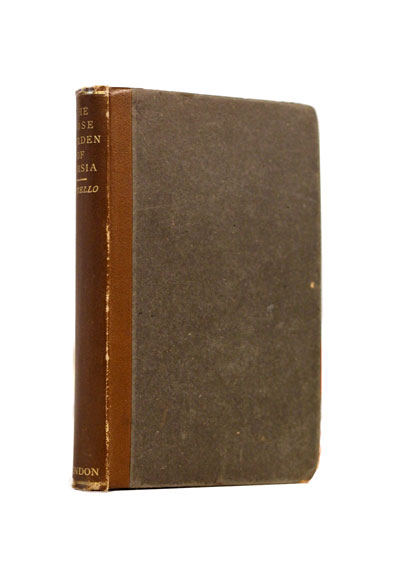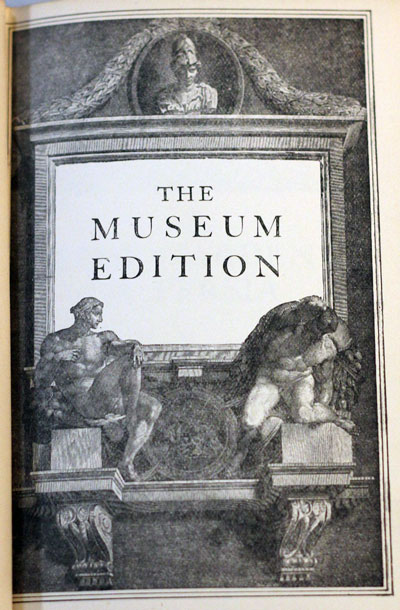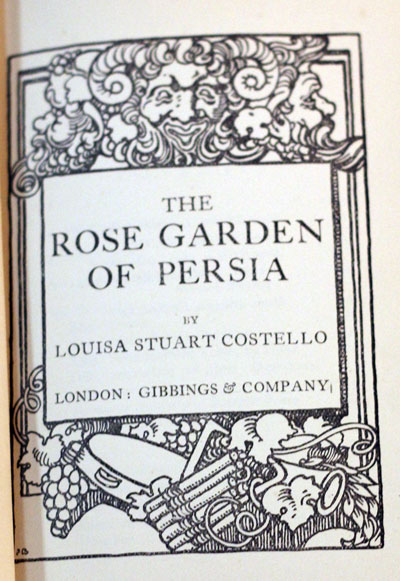A collection of English translations (from various translators) of some of Persia’s greatest poets, with a brief introduction to the poetry of Persia and the lives of the poets by Louisa Stuart Costello.
Here’s a review from the 22 November 1845 Spectator of the first edition of this book:
The volume is opened by a general introduction, in which Miss Costello agreeably but not very compactly gives a curt account of the poetry and early poets of Arabia and Persia ; a description of Oriental caligraphy, and of the splendid manner in which works are ornamented or illumi- nated ; with a sketch of the sect of Sufis, a species of religious Plato- nists, who disguise their adoration of the eternal spirit of creation under the form of Anacreontic and Sapphic lyrics, and very often so success- fully, if translators are to be trusted, that they look like profane and carnal odes. This preliminary matter is followed by specimens of nearly twenty poets; with some account of their lives and writings, as well as a sort of critical estimate of their character and of their national reputa- tion. Of these, the best known to the English reader, by name at least, are Hafiz, Sadi, and Ferdusi. So far as appears in the specimens, all the rest deserve nearly as much celebrity ; for in Miss Costello’s rendering the style of one bard is amazingly like the rest : in which, however, she resembles most translators who, starting upon the excellent principle of doing their best, cannot bear to nod even with Homer. Beyond occa- sional imagery there is little of what we are prone to consider Oriental. On the contrary, the whole seems Tom-Mooreish,—a profusion ot fountains, flowers, fruits, wine, and ladies, mingled with some dilated philosophy of the Garden. But this imitation of Irish Orientalism is ex- ceedingly clever, and, for aught we can see, quite as good as some of the original of later date. Miss Costello in fact has produced as agreeable specimens of Persian poetry as we are likely to have till the advent of a genius at once poet, scholar, and traveller. It must not be concealed, however, that all strength and peculiarity of the original raciness are lost in an elegant prettiness.




